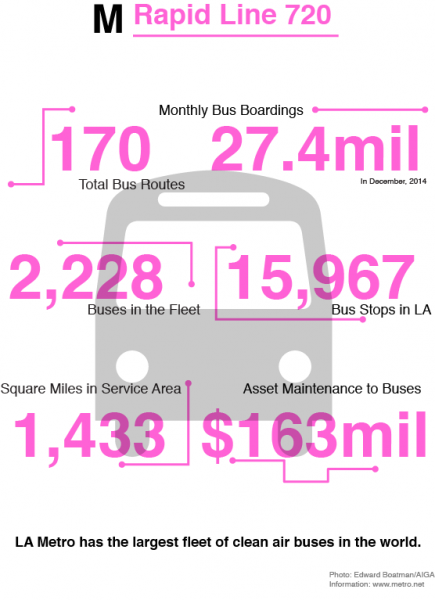The Lighter Side Of A Four Hour Metro Commute
Smoking pot on Metro trains is against the rules. Thomas Cooper, 53, knew this but a fellow passenger didn’t, so Cooper let him know.
"I looked at the guy and I said, 'Would [you] mind? You’re smoking and there’s children,'" Cooper recalled. “He kinda stormed off. I was grateful nothing came about.”
READ MORE:L.A. Metro's Opening Ceremony Celebrates Four More Miles Of The Purple Line
Cooper spends four hours a day, five days a week on the Metro commuting between his apartment in Long Beach and his job in the medical records department at UCLA. He’s seen fights break out between fellow passengers, dealt with angry drivers and sat with the mentally ill, but he only has one complaint.
“If I could make one change, probably the seating,” Cooper said. “The seats that face forward are a little too close. I have to sit to the side.”
Cooper has made almost exclusive use of Los Angeles’ mass transit system for the past 15 years. He is an ardent supporter of the Metro’s smart phone app, Go Metro and has so far remained unwilling to experiment with ridesharing services like Uber and Lyft.
His dependence on trains and buses was so complete that for eight years Cooper didn’t even own a car.
He only purchased a used Toyota pick-up earlier this year because it was a convenient deal from a co-worker.
“I’ve tried it, the 91 to the 710 to the 105 to the 405. When I drive it takes the same amount of time,” Cooper said. “[The Metro] is a lot less stressful, I find it more relaxing.”
It’s also cheaper.
“I save on insurance, I save on parking,” he said. “I save on gas, especially when it gets to five dollars a gallon, that would kill me.”
Cooper saves almost $200 a month by using the Metro for his daily commute, a tidy sum for someone living in one of the nation’s most expensive cities.
Cooper also stands to benefit from the extension of the Purple Line into the Westside.
“Me and a number of co-workers are very excited, we’re always talking about when it's going to open up on Wilshire and Westwood,” he says. “A lot of people are willing to give up their cars for that.”
Cooper won’t be giving up his car, but he will be able to give up on the Metro’s Rapid 720 Line, which along with the Purple and Blue Lines form his daily route. Cooper thinks that the expanding rail system will only draw in more people, especially those unwilling to ride Metro buses.
“That’d be more carpooling buddies for me,” Cooper says. “It’s nice having someone to talk to, it helps pass the time, it really does.”

Reach Contributor Kevin Walker here.



